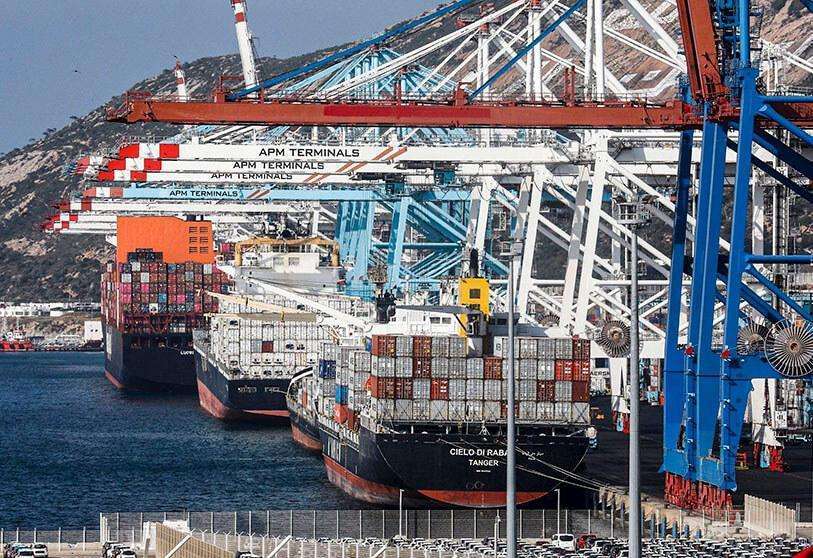We have heard all our lives that the Sun did not set on the Spanish Empire, especially during the 60 years that the Portuguese Empire was integrated into the Spanish Empire, with the House of Austria. Yes, the sun had not yet set on the ‘British Empire’, as Britain had holdings all over the world, and most of them were tax havens under the supervision of the UN Decolonization Committee, which took things in stride.
Nor did the sun set on the ‘French Empire’, even though its northern neighbor integrated its overseas territories into the French Republic and they were therefore not colonies, but rather parts of France. England is another story and in practice they maintained colonies throughout the world, to which they conferred a special and profitable status.
It occurs in Anguilla, Bermuda, the Cayman Islands, the Turks and Caicos Islands, the British Virgin Islands, Montserrat, the Pitcairn Islands, Santa Clara, Ascension and Tristan da Cunha, in addition to Falkland Islands and Gibraltarwhich is the only remaining colony in Europe and the European Union.
‘Pirate cave’
These British possessions had great fiscal privileges and therefore they were sometimes openly referred to as authentic ‘pirates’ dens’ where money was laundered without any problems because its characteristics support it. It happens in Gibraltar, Bermuda, British Virgin Islands… Although perhaps the most popular and common location for this practice is none other than the Cayman Islands.
Pirate Week celebrations in the Cayman Islands.
This British overseas territory consists of three large islands – Grand Cayman, Cayman Brac and Little Cayman – and two small islands located in the Antilles, between the island of Cuba and the coast of Mexico, northwest of Jamaica. In fact, they began to be ruled by the colonial government of Jamaica in 1863 and when Jamaica achieved independence in 1962, they began to have their own government. current status as a British Overseas Territorybecame one of 17 non-autonomous regions under the supervision of the Decolonization Committee.
The Cayman Islands are now back in prominence after FC Barcelona signed an agreement with Mountain & Co to establish a new company with no operational activities based in the Netherlands and the Cayman Islands, whose main objective is to increase capital. Cayman, apart from being a tourist paradise, allows almost anything in terms of taxation and companies and investors can enjoy all the benefits of setting up a company on these islands from the comfort of their home country.

Zero tax
Setting up a company in the Cayman Islands is full of incentives, especially when it comes to the sector investment management, legal and financial services. The UK is by far the country with the most tax havens, and among these countries, the Cayman Islands stands out as one of the most profitable and attractive, as it is originally a tax-free jurisdiction.
There are no corporate, property, capital gains, payroll or withholding taxes. There are also no taxes on sales of goods and services, and residents do not pay income tax.
For all these reasons, Cayman is a an ideal place for a company to set up its subsidiary, to protect some or all of your income from taxes. However, unlike other jurisdictions, in the Cayman Islands, a person can assume the role of director and/or shareholder, regardless of their nationality and residence, and they do not need to be domiciled in the islands.

Grand Cayman Island, the largest island in the archipelago.
There is no minimum capital requirement for company establishment, or annual audits for overseas companies. Corporate bank accounts are widely established in Cayman and the territory is widely used as a listing entity on major stock exchanges around the world. Additionally, there are Cayman tax law experts who offer their services from anywhere in the world.
Five types of companies
In the Cayman Islands, companies and corporations can be formed based on five main types of companies, each with its own rules, reflected in the General Register of the Cayman Islands. Therefore, it is necessary to carefully consider which one is most convenient depending on the type of company.
Limited liability company: This is the most suitable option for companies that will carry out their activities mainly from abroad. The big advantage is that those in charge of an incorporated company, executives, managers, and shareholders, cannot be held personally liable for the debts and actions of that entity.
Excluded companies: Intended for companies that conduct business outside the Cayman Islands and are not required to register their members for public inspection or hold an annual general meeting in the islands.
Resident company: These are companies that carry out their activities on the islands and therefore must have a physical office there, register their staff and report annually to the Registration Office.
Non-resident companies: These are those who do not intend to do business in the Cayman Islands and to do so they must partner with local entities, however they are allowed to buy and sell shares of foreign companies and exempt companies.
Overseas or foreign companies: Companies incorporated outside the Cayman Islands, but if they are registered under this name, they have the right to own property and conduct business on the island, in addition to being able to merge with limited liability companies excluded from Cayman.
Basic procedures
Applications for company establishment are processed in a within 6 to 10 working days. While there are various types of companies that can be established in the Cayman Islands, they all must follow a series of basic, not too varied, general guidelines, such as reserving and registering a company name in General. Cayman Islands registration and paying incorporation fees, which initially range between $2,000 and $3,000.
However, all companies must pay an annual renewal fee of 5,000 to 6,000 US dollars, not Cayman Islands dollars, which is the local currency. A Caymanian dollar This is equivalent to 1.19 United States dollars.
The company must open a corporate bank account, for which it is necessary to fill in a detailed application form and provide various documentation for its creation. Some banks ask for identification of major shareholders, not all, as well as those responsible for managing the account. There is a procedure for this special company Around the world responsible for carrying out all procedures.
More than twenty countries are tax free
Last February, the Ministry of Finance and Public Administration approved an Order determining which countries and regions, as well as hazardous tax regimes, are considered tax havens based on new international concept of “non-cooperative jurisdiction”.
With Order HFP/115/2023 of February 9, the Ministry of Finance has updated it in 2023 for the first time in 31 years, reduced the list of tax-free countries to 24. The European Union temporarily removed the Cayman Islands from its list of tax havens in 2020, but it is clear that its tax provisions say otherwise.

This new text updates the definition of “tax haven” and adapts it to the international concept of “non-cooperative jurisdiction” with new factors and objectives combating fraud, tax evasion and money laundering. The standard aims to “identify countries and territories characterized by facilitating the presence of extraterritorial companies, or by their existence.” opacity and lack of transparencydue to the lack of regulations with that country regarding the exchange of tax information, due to the absence of an effective exchange of information with Spain or due to the results of the evaluation carried out by the Global Forum on the effectiveness of the exchange of tax information. information with those countries, states and territories”.
In the current list of non-cooperative jurisdictions, we no longer find Malta, Hong Kong or Cyprus, although there are new tax havens such as Bahrain, Dominica, Guam, Palau, Samoa and American Samoa. In the complete list of 24 regions, there are many regions included in it under British guardianship and other people who stop being so. Consisting of Anguilla, Bahrain, Barbados, Bermuda, Dominica, Fiji, Gibraltar, Guam, Guernsey, Isle of Man, Falkland Islands, Mariana Islands, Solomon Islands, Turks and Caicos Islands, British Virgin Islands, American Virgin Islands States of America, Jersey , Palau, Samoa, American Samoa, Seychelles, Trinidad and Tobago, Vanuatu and the Cayman Islands themselves.

“Entrepreneur. Internet fanatic. Certified zombie scholar. Friendly troublemaker. Bacon expert.”






